Reserve your table at the 2026 B2B and support entrepreneurs building a future beyond incarceration.
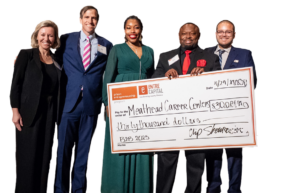
In summary, the PEP curriculum lasts roughly one year, but does vary depending on a variety of factors. Most participants experience an intense period of engagement lasting 50 weeks on average.

In PEP’s first program phase (in-prison, remote course), men learn how to retool negative thoughts and beliefs by developing character, adopting core values, having positive role models, learning conflict resolution skills, and developing forward thinking. This phase begins the change in the individual’s perception of his self-worth and potential. Volunteers quicken this change through encouragement and feedback (“you’re not going it alone; stay the course”). For many years, this first phase has been a correspondence course, but it is now being experienced on TDCJ-provided tablets to each resident of their facilities.
PEP’s second phase includes a mini-MBA course. Individuals form teams to build a business plan which is presented at the Business Plan Competition (BPC) in a Shark Tank-like event. Volunteers provide feedback at multiple class intervals and serve as the judges to determine the winning team at graduation. Graduates earn a Certificate in Entrepreneurship from Baylor University and are recognized as a part of Toastmasters Gavel Club.
Towards the end of the BPC, PEP staff and volunteers begin contacting the families as well as working with participants in order to begin the process of preparing families to receive the participant upon release. Participants are guided as to how to correspond with families during this time. Family members are invited to attend graduation, which is often the first time they have seen their loved one in a cap and gown.
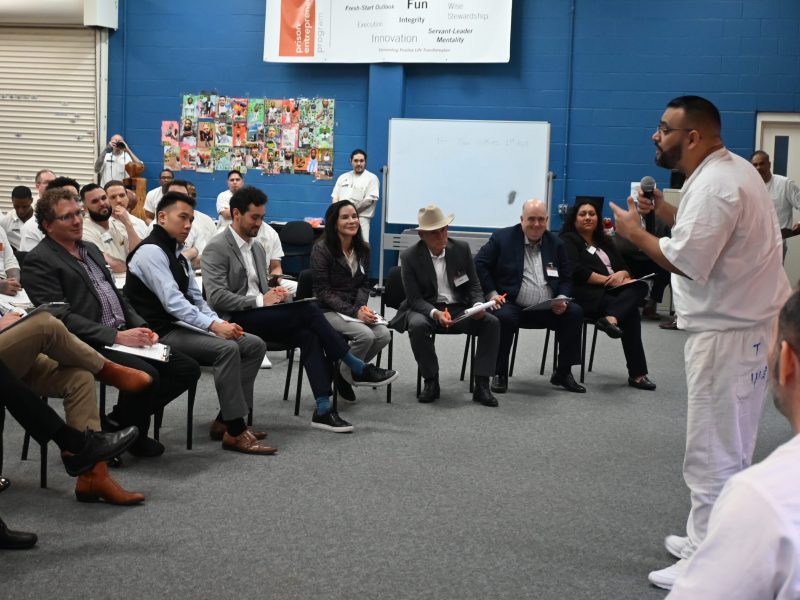
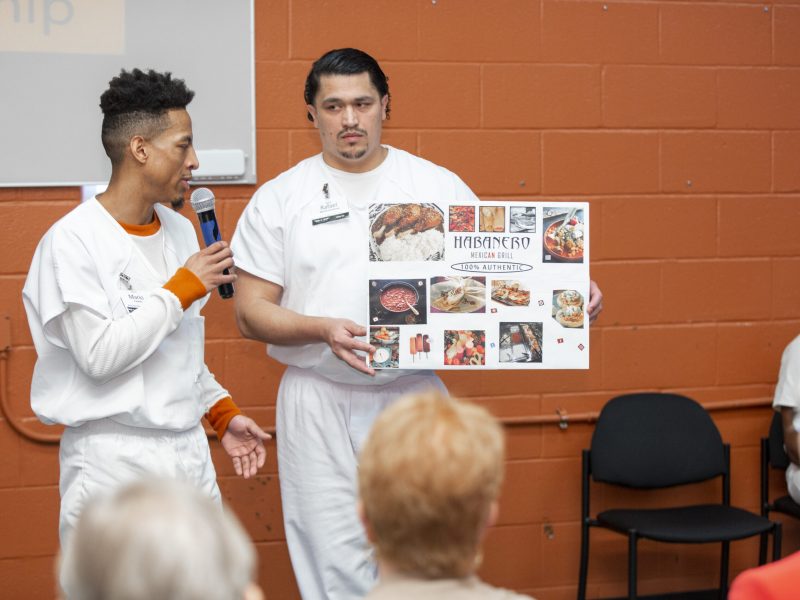

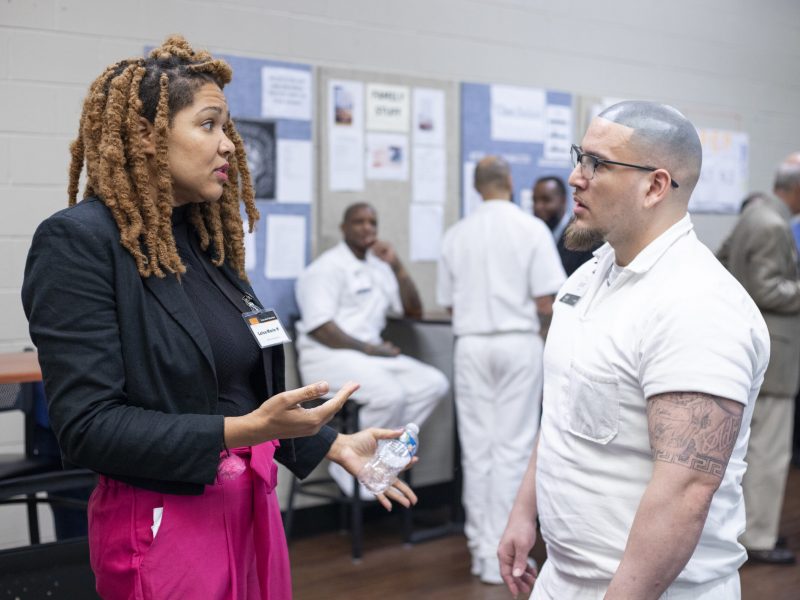
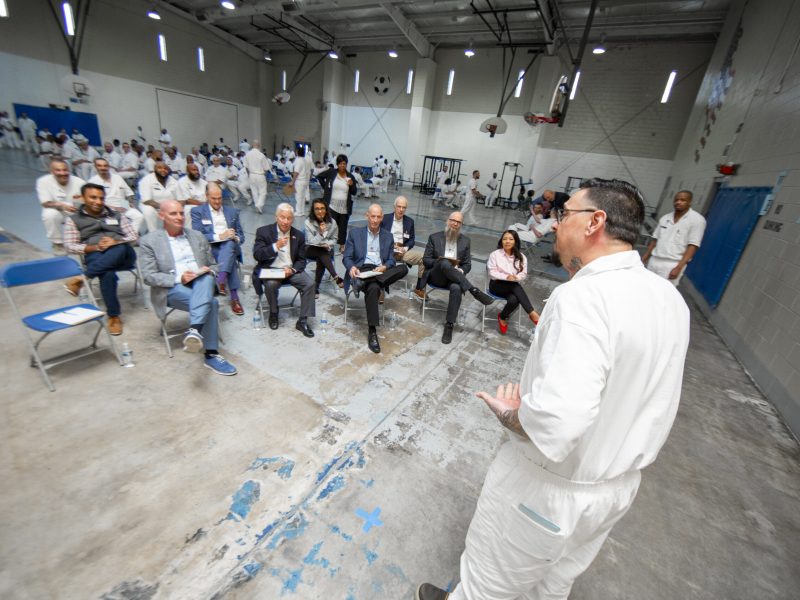
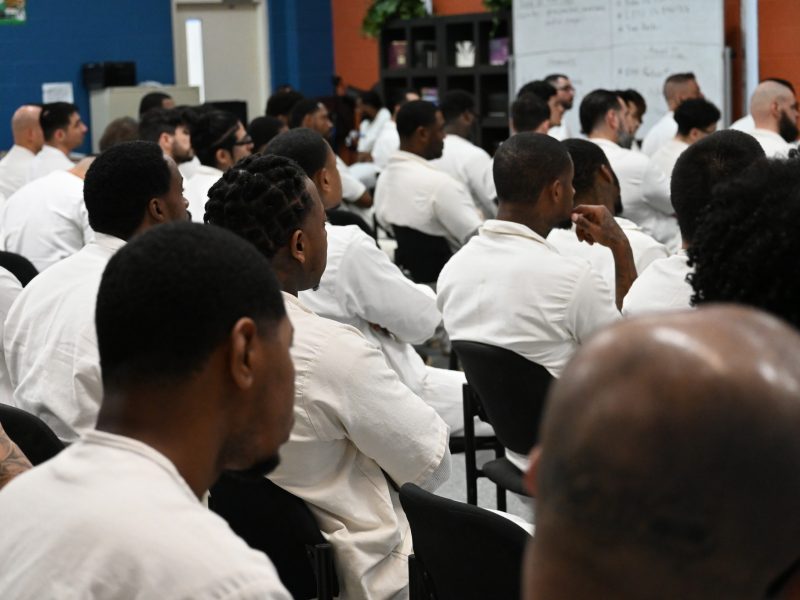

Upon completion of the BPC, participants are required to attend the “Clubhouse” where executives serve on a panel, which is facilitated by two participant moderators in a peer-driven, group setting. Together, executive volunteers and participants discuss 15 topics that will help prepare the participant for life outside of prison and lead their families and communities. These topics include ideas such as goal formation, life balance, relationship building, decision making, habits, active listening, the art of delegation and community. Upon completion of the 15-topic program, participants are invited to enter the third phase of the in-prison program.
In PEP’s third phase (in-prison until release, typically 3 months), program graduates become servant leaders by guiding subsequent classes while waiting release. Servant leaders take on roles to build their resume experience and form peer advisory groups to build connectivity prior to release and hone post-release plans. Character development continues with the graduates living out the values they have adopted. This attitude of gratitude and community reinvestment is a key driver of post-release success.